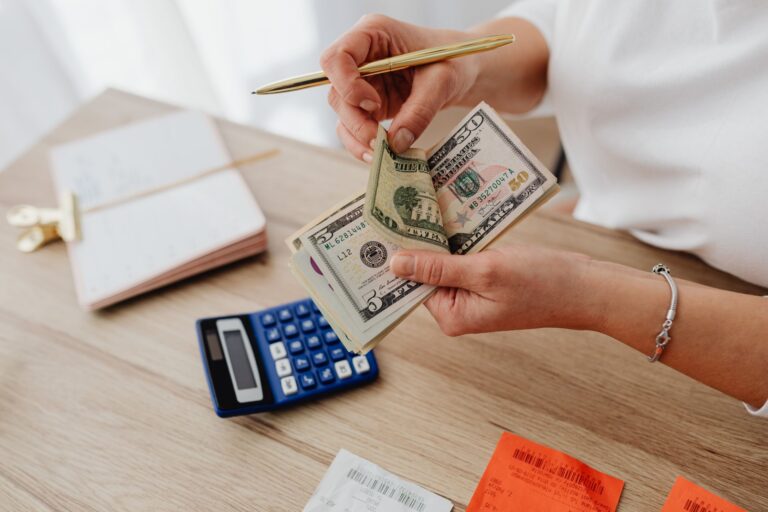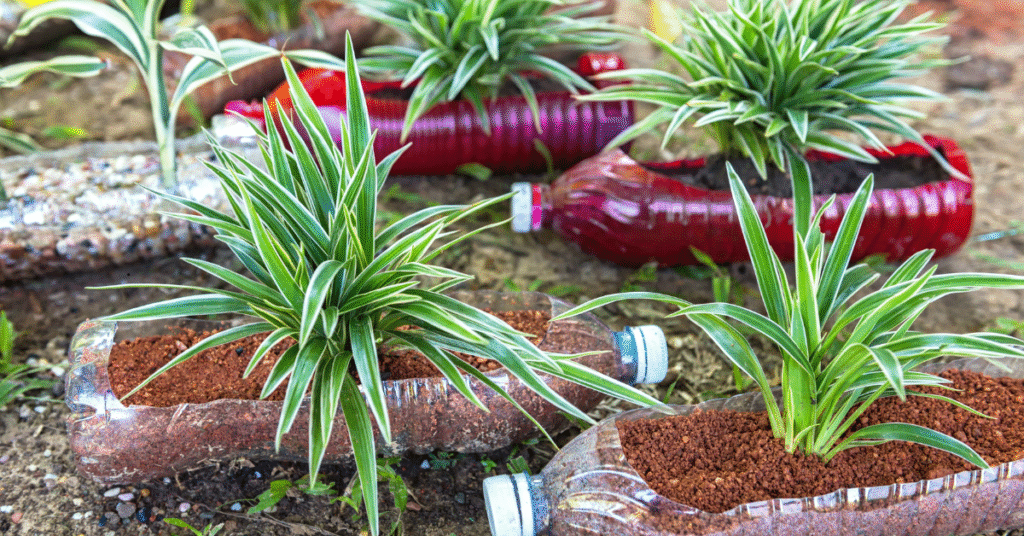Habits Of Frugal People: 10 Frugal Ways To Save Serious Cash

Let’s get real for a second. You’re tired of watching your paycheck disappear faster than free pizza at a college party, right? I’ve been there, and honestly, it sucks.
But here’s the thing: frugal people aren’t just naturally gifted with superhuman willpower. They’ve simply figured out a few tricks that make saving money feel less like torture and more like a game you’re actually winning.
Look, I’m not going to promise you’ll become a millionaire overnight by skipping your morning latte (though we’ll talk about that coffee habit in a bit).
What I will tell you is that the habits of frugal people can genuinely transform how you handle money. And the best part? These aren’t complicated financial gymnastics that require a PhD in economics.
Ready to stop stressing about money and start keeping more of it in your pocket? Let’s break down exactly what frugal folks do differently and how you can steal their playbook.
What Are Some Frugal Habits?
Before we jump into the deep end, let’s clear something up. Frugal habits aren’t about being cheap or depriving yourself of everything fun. Nope. They’re smart, intentional choices that help you spend less than you earn while still enjoying life.
Think of frugal habits as your financial safety net. They’re the small, consistent actions that add up to big savings over time. We’re talking about things like cooking at home instead of ordering takeout five nights a week, actually using a budget (I know, shocking), and not treating your credit card like free money.
The cool thing about these habits? Once they become part of your routine, they stop feeling like sacrifices. They just become… well, what you do. And your bank account will thank you for it.
Why Should You Have Frugal Habits?
Okay, so why bother with all this frugal living stuff anyway? Can’t you just work harder and make more money?
Sure, earning more is great. But here’s what nobody tells you: if you can’t manage the money you have now, you won’t manage more money any better. I’ve seen people get raises and somehow end up broker than before. It’s wild.
Frugal habits give you control. They help you avoid drowning in debt, build an actual emergency fund (not just hoping nothing breaks), and maybe even retire before you’re 80. Plus, when life throws you a curveball (and it will), you’ll have the financial cushion to handle it without panicking.
Living below your means isn’t about being miserable. It’s about having options. And trust me, options feel pretty darn good.
Benefits Of Having Frugal Habits
Still not convinced? Let me break down what actually happens when you start living like frugal people do. These benefits aren’t just theory, they’re real results you’ll see in your own life.
- Saves You Money
This one’s obvious, but it’s worth saying: frugal habits save you a ton of cash. And I’m not talking about pocket change here.
Think about it this way. If you spend $15 on lunch every workday, that’s $75 a week. Over a year? That’s nearly $4,000 just on midday meals. Pack your lunch instead, and suddenly you’ve got a nice vacation fund or a solid start to your emergency savings.
The math is simple: spend less, save more. Every dollar you don’t waste on stuff you don’t need is a dollar you can use for things that actually matter to you. Whether that’s paying off debt, investing, or finally taking that trip you’ve been dreaming about.
Small cuts add up faster than you think. Cut $10 here, $20 there, and before you know it, you’re looking at hundreds of extra dollars every month. That’s real money that can change your life.
- Early Retirement
Want to stop working before your body gives out? Frugal living is your ticket.
Here’s the deal: retirement isn’t about age, it’s about having enough money saved that you don’t need to work anymore. The less you need to live on, the less you need to save. And the more you save now, the sooner you can tell your boss to take a hike (politely, of course).
Frugal people often retire years or even decades earlier than their big-spending peers. Why? Because they’ve been consistently saving and investing instead of upgrading their lifestyle every time they got a raise.
Compound interest is your best friend here. The earlier you start saving, the more time your money has to grow. A frugal lifestyle in your 20s and 30s can literally buy you freedom in your 40s or 50s. Not a bad trade-off, if you ask me.
- Financial Contentment
Ever notice how the more stuff people have, the more stressed they seem? There’s a reason for that.
When you practice frugal habits, something interesting happens. You stop comparing yourself to everyone else. You’re not trying to keep up with your neighbor’s new car or your coworker’s designer handbag. You’re just… content with what you have.
This contentment is seriously underrated. It means you’re not constantly chasing the next shiny thing, hoping it’ll finally make you happy. You’ve figured out that happiness doesn’t come from stuff, it comes from financial security and peace of mind.
Living below your means takes the pressure off. You’re not stressed about impressing anyone or maintaining some image. You’re just living your life, making smart choices, and feeling pretty good about it.
Less Financial Stress
Let’s talk about stress for a second. Money problems are one of the top causes of anxiety, relationship issues, and sleepless nights. I’ve been there, staring at the ceiling at 3 AM, wondering how I’m going to pay all my bills.
Frugal habits eliminate most of that stress. When you’re living below your means, you’re not constantly worried about making ends meet. You’ve got breathing room in your budget. Unexpected expenses don’t send you into a panic because you’ve got savings to cover them.
Imagine not dreading your credit card statement every month. Imagine actually having money left over after paying your bills. That’s what frugal living gives you: peace of mind.
Your mental health is worth more than any purchase, trust me. The calm that comes from financial stability? You can’t put a price on that. Well, actually, you can. It’s the price of living frugally. 🙂
- Improves Your Net Worth
Here’s something most people don’t think about: every frugal choice you make directly increases your net worth.
Your net worth is basically what you own minus what you owe. When you save $200 a month instead of spending it, that’s $2,400 added to your net worth each year. Do that for ten years while also avoiding debt, and you’re looking at a significantly healthier financial picture.
Frugal people understand that building wealth isn’t just about earning more (though that helps). It’s about keeping more of what you earn and putting it to work through savings and investments.
Every time you choose the frugal option, you’re choosing to increase your net worth. Skip the expensive dinner out? Net worth goes up. Buy a reliable used car instead of a brand new one? Net worth goes up. It’s like a game where you actually win.
10 Habits Of Highly Frugal People
Alright, enough theory. Let’s get into the actual habits that frugal people use to save serious money. These are practical, doable changes that anyone can implement starting today.
1. Regular Homemade Coffee

I know, I know. You saw this one coming. But hear me out before you roll your eyes.
That daily Starbucks run? It’s costing you way more than you think. A $5 coffee every workday adds up to $100+ per month, or over $1,200 a year. For coffee. Let that sink in.
Making coffee at home takes literally five minutes. You can buy a decent coffee maker for $30, and even fancy coffee beans cost a fraction of what you’re spending at coffee shops. Plus, you can make it exactly how you like it without dealing with the morning rush.
I switched to homemade coffee a few years back, and honestly? I don’t miss the coffee shop at all. I’ve saved thousands of dollars, and my morning routine is actually more relaxing now. No lines, no rushed orders, just good coffee in my own kitchen.
If you really need that coffee shop vibe occasionally, treat yourself once a week. But making it a daily habit? That’s just throwing money away, my friend.
2. Hosting At-Home Family Date Nights
Date nights don’t have to drain your wallet. In fact, some of the best dates I’ve had were at home.
Think about it: dinner and a movie out can easily cost $80-100. Do that twice a month, and you’re looking at $2,000 a year just on date nights. That’s a vacation right there.
At-home dates can be just as fun, if not more so. Cook a nice meal together (cooking together is actually pretty romantic, FYI), open a bottle of wine, and stream a movie you both want to see. Total cost? Maybe $20-30, and you get to be in your pajamas.
You can get creative too. Have a game night, do a puzzle together, or set up a backyard picnic. The point isn’t where you are, it’s who you’re with. Your relationship doesn’t need expensive restaurants to thrive.
Plus, there’s something nice about not having to get all dressed up or worry about getting a babysitter. Home dates are comfortable, affordable, and honestly just as memorable as fancy nights out.
3. Purchasing Ingredients In Bulk

Buying in bulk might seem counterintuitive when you’re trying to save money. Spending more upfront to save later? Sounds sketchy, right?
But here’s the thing: the per-unit cost of bulk items is almost always cheaper. That’s just basic math. A single roll of paper towels costs more per sheet than buying a 12-pack. Same goes for rice, pasta, canned goods, and pretty much everything else with a long shelf life.
I started buying bulk a few years ago, and the savings are real. My grocery bill dropped by about 20-25% without changing what I actually eat. That’s an extra $50-75 in my pocket every month.
The key is to only buy in bulk for things you actually use regularly. Don’t go buying 50 pounds of quinoa if you’ve never cooked it before. Stick to staples: rice, beans, pasta, canned tomatoes, toilet paper, cleaning supplies.
Also, bulk buying means fewer trips to the store, which means less temptation to impulse buy. You’re saving money and time. Win-win.
4. Repairing Broken Home Appliances
Our throwaway culture wants you to buy new stuff the second something breaks. Don’t fall for it.
Most home appliances can be repaired for a fraction of the cost of replacing them. And with YouTube? You can learn to fix almost anything yourself. I’m not even particularly handy, but I’ve successfully repaired a vacuum cleaner, a blender, and even my washing machine just by following online tutorials.
The sense of accomplishment you get from fixing something yourself is pretty great too. Plus, you’re keeping stuff out of landfills, so it’s better for the environment.
Obviously, some repairs require professionals, especially if they involve gas lines or complex electrical work. But before you call someone or buy a replacement, at least check if it’s something you can handle yourself. You might surprise yourself.
Even if you do need to hire someone, repair is usually still cheaper than replacement. A $100 repair bill beats a $500 new appliance any day.
5. Moving To A Cheaper Apartment
This one’s tough, I’ll admit. Nobody wants to downsize or move to a less fancy place. But housing is typically your biggest expense, and cutting it can save you serious money.
If rent or mortgage is eating up more than 30% of your income, you’re in dangerous territory. That’s too much of your money going to just keeping a roof over your head, leaving you with little for savings or other goals.
I know someone who moved from a trendy downtown apartment to a smaller place in a less hip neighborhood. She saved $600 a month. That’s $7,200 a year! In three years, she saved enough for a down payment on a house.
Yes, moving is a pain. Yes, you might have to give up some space or convenience. But the financial breathing room you gain is worth it. You can always move back to a nicer place later when your finances are stronger.
Think of it as a temporary sacrifice for long-term gain. Your future self will thank you when you’re not living paycheck to paycheck anymore.
6. Building A Monthly Budget

If you’re not budgeting, you’re basically driving with your eyes closed. You might get somewhere, but you’ll probably crash first.
A budget isn’t about restricting yourself, it’s about knowing where your money goes and making intentional choices. It’s the foundation of every other frugal habit on this list.
I resisted budgeting for years because I thought it would be boring and restrictive. Turns out, it’s actually freeing. When you know exactly what you can spend in each category, you stop feeling guilty about purchases. You’re in control.
Start simple. Track your income and expenses for a month to see where your money actually goes (prepare to be shocked). Then create categories and set limits for each. There are tons of apps that make this easy, or you can just use a spreadsheet.
The key is to review and adjust your budget regularly. Life changes, and your budget should change with it. But having that framework keeps you accountable and helps you reach your financial goals faster.
7. Repurposing Old Items Into New Materials

Before you throw something away or donate it, ask yourself: can this be used for something else?
Frugal people are masters at seeing potential in old stuff. That worn-out t-shirt? Cut it up for cleaning rags. Old jars? Perfect for food storage or organizing small items. Furniture that’s seen better days? A little paint or new hardware can make it look brand new.
I’ve turned old pallets into shelving, transformed mason jars into bathroom organizers, and repainted thrift store furniture to match my decor. Total spent? Maybe $50. Buying all that stuff new would’ve cost hundreds.
Repurposing is creative and fun. It’s like a puzzle: how can I make this old thing useful again? Plus, you end up with unique items that nobody else has.
There are countless tutorials online for repurposing projects. Start with something simple and see where it takes you. You might discover a new hobby while saving money. Not bad, right?
8. Canceling Unused Or Irrelevant Subscriptions

Quick question: how many subscriptions are you paying for right now? Streaming services, gym memberships, software, apps, subscription boxes… they add up fast.
Most people are paying for at least a few subscriptions they rarely or never use. That gym membership you haven’t used in six months? That streaming service you signed up for one show and forgot about? They’re quietly draining your bank account every month.
I did a subscription audit last year and found I was paying for three streaming services (only regularly using one), a magazine subscription I never read, and software I’d used maybe twice. Canceling all that saved me $85 per month, or over $1,000 a year.
Go through your bank and credit card statements right now. Identify every recurring charge. Ask yourself: do I actually use this? Does it add value to my life? If the answer is no or even maybe, cancel it.
You can always resubscribe later if you really miss it. But chances are, you won’t even notice it’s gone. And your wallet will definitely notice the extra cash.
9. Preserving Leftovers
Throwing away food is literally throwing away money. You paid for that food, and now it’s going in the trash? That’s just silly.
Americans waste about 30-40% of the food supply, according to the USDA. That’s not just bad for the environment, it’s terrible for your budget. If you’re throwing away $50 worth of food each month, that’s $600 a year in the garbage.
Get in the habit of preserving leftovers. Invest in good food storage containers (you can find cheap ones at dollar stores). After every meal, immediately pack up what’s left and refrigerate or freeze it.
Leftovers make perfect lunches, which saves you from buying lunch out. They can also be repurposed into new meals. Leftover chicken? Throw it in a salad or make chicken tacos. Leftover rice? Fried rice for dinner.
Also, learn proper food storage techniques. Most food lasts longer than you think if stored correctly. That milk isn’t bad just because it hit the date on the carton, smell it and use your judgment.
10. Embracing DIY Projects
Labor costs money. Like, a lot of money. Every time you hire someone to do something you could do yourself, you’re paying for their time, expertise, and overhead.
Now, I’m not saying you should DIY everything. Some things genuinely require professionals (please don’t DIY your electrical work or plumbing unless you know what you’re doing). But a lot of tasks are easier than you think.
Painting a room? Totally DIY-able. Basic car maintenance like changing oil or replacing air filters? You can learn that. Hemming pants? Get a $20 sewing kit and watch a tutorial. Cleaning your gutters? Grab a ladder and get to it.
I used to call someone for everything. Then I started trying to do things myself, and I realized most tasks aren’t that complicated. They just require a little time and willingness to learn.
The money you save is significant. A professional painter might charge $500 to paint a bedroom. You can do it yourself for the cost of paint and supplies, maybe $75. That’s $425 in your pocket.
Plus, there’s real satisfaction in completing a project yourself. You learn new skills, gain confidence, and save money. That’s a pretty good deal, IMO.
Final Thoughts
Look, adopting frugal habits isn’t going to be easy at first. You’ll miss some of your old spending habits. You might feel like you’re missing out when your friends are doing expensive stuff and you’re staying home.
But here’s what I want you to remember: every frugal choice you make is an investment in your future. You’re not depriving yourself, you’re prioritizing what actually matters. Financial security. Peace of mind. The ability to handle emergencies without panicking. Maybe even early retirement.
The habits of frugal people aren’t about being cheap or miserable. They’re about being intentional with your money so you can build the life you actually want, not the life credit card companies want you to have.
Start with one or two habits from this list. Master those, then add more. Before you know it, frugal living will feel natural. And your bank account? It’ll look a whole lot healthier too.
Your future self is counting on you to make smart choices today. Don’t let them down.








